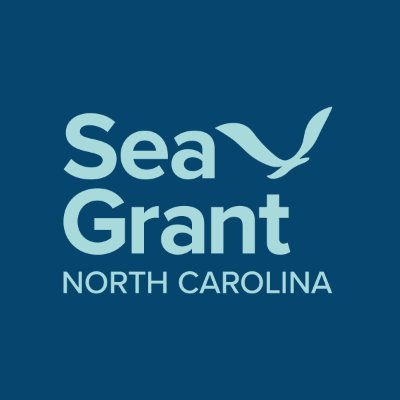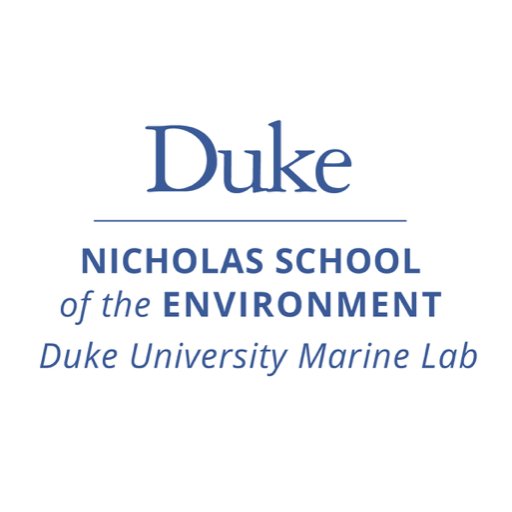
Duke Environment
@DukeEnvironment
Followers
9K
Following
2K
Media
2K
Statuses
8K
@DukeU's Nicholas School of the Environment is committed to a multi- and interdisciplinary study of the environment.
Durham, NC
Joined January 2009
In this issue of Coastwatch, Julie Leibach of @DukeEnvironment details ongoing research to see how hyper-realistic videos and images called "deepfakes" can help scientists study rare species like the North Atlantic right whale.
ncseagrant.ncsu.edu
0
1
1
The late coastal geologist Orrin Pilkey frequently spoke about the dynamic nature of N.C.'s barrier islands. In this essay, Pilkey's son Charles explores the geologic processes that formed those islands and other ocean features less visible to the eye: https://t.co/FwPyvDfh5R
0
0
1
Feeling the squeeze from rising electricity rates? Cost savings are hiding in plain sight, explains Ph.D. student Tyler Norris, in an op-ed for @nytimes
nytimes.com
Data centers need to become more flexible to squeeze more from the grid.
0
0
0
Duke Health has received a $4.5 million award from The Duke Endowment to launch the Climate and Health Research Initiative (CHeRI), a collaborative effort between DGHI, @DukeMedSchool, @DukeEnvironment, & @NichInstitute. https://t.co/0hTaNvZS8C
giving.dukehealth.org
Duke Health has received a $4.5 million award from The Duke Endowment to support groundbreaking work to understand and address the health impacts of climate change in the Carolinas.
0
1
1
Congrats to Ph.D. student Tyler Norris, who was named to the 2025 @TIME 100 Climate list. His research on electric power systems is helping the tech and energy industries find ways to meet rising electricity demand using the existing grid. https://t.co/wLA9ryZ12B
time.com
Find out why Tyler Norris is on TIME's 2025 list of the 100 most influential leaders driving business climate action.
0
3
20
A year after Hurricane Helene, young North Carolina students are learning resilience through fables and shadow puppets, turning challenges into strength. See how this curriculum is preparing our coastal communities: https://t.co/OpXQ2os6CD
@NichInstitute | @DukeEnvironment
2
2
11
As the anniversary of Hurricane Helene approaches, N.C. educators may be looking for ways to help students navigate challenging times. Ready, Set, Resilience — a middle school program from NSOE and partners — uses nature-based stories to support them.
nicholas.duke.edu
0
0
0
At the 2025 Goldschmidt Conference in Prague, Avner Vengosh accepted the Clair C. Patterson Medal from the Geochemical Society. The annual award recognizes innovative contributions to environmental geochemistry, particularly in service to society.
nicholas.duke.edu
Named for a 20th-century geochemist who determined the age of Earth and the solar system, and who conducted foundational analyses of lead contamination in the environment, the annual award recognizes...
0
0
2
Duke experts from NSOE and @DukeHealth are studying goose‑beaked whales, the ocean’s deepest‑diving mammals. Their extreme tolerance for low oxygen may offer clues for new treatments in humans for stroke, cancer and more.
yahoo.com
Goose-beaked whales hold the record for the deepest dive of any mammal. Researchers want to learn their secrets to develop new drugs for human diseases.
0
0
0
About 390 million years ago, rising deep-ocean oxygen levels opened new marine habitats. New research suggests this shift sparked an evolutionary burst among jawed fish — the ancestors of most vertebrates alive today.
nicholas.duke.edu
Some 390 million years ago in the ancient ocean, marine animals began colonizing depths previously uninhabited. New research indicates this underwater migration occurred in response to a permanent...
0
3
5
Duke is proud to announce a new joint-degree program: the Master in Business, Climate, and Sustainability. Designed by @DukeFuqua and the Nicholas School, this interdisciplinary program will equip students with business skills informed by climate science.
today.duke.edu
0
0
1
Nicholas School researchers used generative AI to create synthetic whale images. These deepfake whales could help train wildlife detection systems and serve as a key tool for marine conservation. https://t.co/cfuVD2iJBn
nicholas.duke.edu
AI-generated images of rare species could improve efforts to understand, monitor and protect them.
1
0
0
Meet the captain powering Duke’s ocean research: Brantley Acree takes you on the water and behind the scenes at Duke Marine Lab. Step aboard and see a day in his life at sea … https://t.co/mfvyOfyOTW
@DukeMarineLab @DukeEnvironment @DukeUClimate @DukeClimate @SustainableDuke
0
3
3
From coral reefs to rainforests, tropical ecosystems in Belize were immersive classrooms for students in the marine ecology travel course, led by Brian Silliman. Dive into their experience:
nicholas.duke.edu
0
1
0
When it comes to seafood imports, developing countries get more nutritional bang for their buck, according to a new study published by Nicholas School environmental economist Martin Smith and colleagues. https://t.co/UIhg4kTGGy
nicholas.duke.edu
A new economic analysis found that developing countries pay less for the nutrition in seafood imports than developed countries, largely because developed countries pay a premium for non-nutritional...
0
0
0
A Duke walkway slab of Pennsylvania Bluestone may offer a new window into the past. Learn why these fossilized footprints, in particular, caught the attention of Alexander Glass:
today.duke.edu
370-million-year-old tracks unearthed on a West Campus paver stone spark a Duke paleontologist’s quest to uncover the fossil’s story. “Something walked here – with legs…” @DukeEnvironment @DukeU
https://t.co/qKgyl5Gcws
0
1
2
Greg Merrill, Ph.D.’25, joined PBS North Carolina to discuss the impact of plastic pollution on marine mammals. He also shared how researchers at the Marine Lab are investigating its causes and consequences. https://t.co/1oSk1PuOyU
0
1
0
A Duke-led analysis of satellite data reveals ocean waters are getting greener at the poles and bluer near the equator. If the trend continues, it could reshape marine food webs and impact global fisheries. https://t.co/y60pCe4Bln
nicholas.duke.edu
Ocean waters are getting greener at the poles and bluer toward the equator, according to a new study. The change reflects shifting concentrations of a green pigment called chlorophyll made by...
0
2
3
Avner Vengosh, Erika Weinthal and Ginger Sigmon are part of a team looking to establish an interdisciplinary platform for research and education of critical minerals. The project was selected as one of three new hubs funded through the provost’s office.
interdisciplinary.duke.edu
The Office of the Provost has chosen three faculty-led projects to receive Multiyear Interdisciplinary Hubs grants for research, education and engagement.
0
1
3
New Vengosh Lab study finds unique chemistry in critical lithium deposits.
nicholas.duke.edu
Much of the world’s lithium occurs in salty waters with fundamentally different chemistry than other naturally saline waters like the ocean, according to a new study published in Science Advances....
0
0
0





















